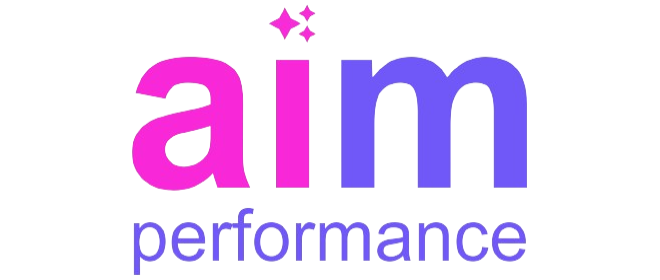Introduction: The Power of Performance Management in Blue Collar Workforce
Performance management plays a crucial role in enhancing workforce efficiency, and this is especially true for blue collar workforce. Unlike white-collar positions, blue collar jobs are often physically demanding, require precise coordination, and are driven by operational goals. Implementing a robust performance management system helps optimize these efforts and ensures that blue collar workforces are well-equipped to meet their targets.
As industries evolve, it’s becoming clear that improving how performance is managed for blue collar employees can bring several benefits. From increasing efficiency to enhancing job satisfaction, the impact of performance management in this sector cannot be overstated.
Streamlining Operational Efficiency
For blue collar workforce, operational efficiency is the cornerstone of day-to-day tasks. Whether it’s manufacturing, construction, or maintenance work, every minute counts. A well-executed performance management system ensures that employees have clear guidelines, receive continuous feedback, and can track their progress.
For example, setting key performance indicators (KPIs) helps employees stay focused on specific goals, reducing inefficiencies caused by unclear expectations. With regular appraisals and feedback, employees are more likely to make real-time adjustments that enhance productivity.
Boosting Motivation through Regular Feedback
Blue collar jobs can sometimes feel repetitive, leading to decreased motivation. However, when employees receive regular feedback on their performance, it helps create a sense of achievement. Performance management systems encourage managers to provide constructive feedback, praise good performance, and address areas for improvement.
This consistent communication boosts morale and motivates employees to push harder, as they understand how their work directly impacts the organization’s success. In this way, performance management fosters a positive work environment where employees feel recognized and valued.
Enhancing Safety Standards on the Job
Safety is a top concern in any blue-collar industry. Poor performance management can lead to negligence and accidents, while effective systems enhance employee’s adherence to safety protocols. Performance management allows supervisors to track not only productivity but also adherence to safety guidelines.
By continuously monitoring and reviewing employee’s performance in relation to safety standards, organizations can identify potential risks early on. This proactive approach ensures that safety remains a priority, reducing the chances of accidents and keeping the workforce healthy and productive.
Skills Development and Training Needs
A key element of performance management is identifying gaps in employee’s skills and addressing them through training. For blue collar workforce, hands-on training is often essential for mastering tasks, handling specialized machinery, or adapting to new technologies.
When performance reviews highlight areas where employees can improve, employers can develop targeted training programs. This investment in skill development not only enhances individual performance but also improves overall productivity within the workforce.
Reducing Turnover and Increasing Retention
High turnover rates are common in blue collar industries. Employees often leave due to a lack of career progression or job satisfaction. However, with a structured performance management system, employees can see a clear path for growth.
By setting clear expectations, providing feedback, and offering development opportunities, performance management helps retain talent. Employees who feel supported in their roles are more likely to stay with the company long-term, reducing the costs associated with hiring and training new employees.
Promoting Accountability and Ownership
Accountability is a crucial aspect of blue collar work. Performance management systems create a culture of ownership, where employees are responsible for their own success. When employees know they will be evaluated based on specific criteria, they tend to take greater responsibility for their tasks.
Regular check-ins and performance reviews ensure that employees are consistently meeting their goals. This process not only holds them accountable but also gives them a sense of ownership over their work, boosting both individual and team performance.
Aligning Workforce Goals with Organizational Objectives
One of the primary functions of performance management is to align employee efforts with broader company goals. In the case of blue-collar workforce, aligning their daily tasks with the organization’s objectives ensures that everyone is moving in the same direction.
For example, if a company’s goal is to reduce production downtime, performance management can focus on how each employees contributes to achieving that objective. When employees understand how their performance fits into the bigger picture, they are more motivated to work towards common goals.
Facilitating Effective Communication between Managers and Employees
Communication is key in any workplace, but it becomes even more critical in environments where tasks are physically demanding and time sensitive. Performance management fosters open communication between managers and blue-collar workforce, ensuring that everyone is on the same page.
Through regular performance reviews and feedback sessions, employees gain a clearer understanding of what’s expected of them. At the same time, managers can better understand the challenges employees face on the ground, allowing for a more supportive and cohesive work environment.
Preparing for Technological Advancements
As automation and technology become more prevalent in blue collar industries, performance management helps employees adapt to these changes. Employees may need to operate new machinery or work alongside automated systems, which requires a shift in skill sets.
Performance management systems can help identify employees who may need additional training to adapt to new technologies. By supporting employees through this transition, companies can ensure that they remain competitive in an increasingly automated world.
Conclusion: Unlocking the Full Potential of Blue Collar Workforce through Performance Management
Incorporating a well-structured performance management system into blue collar environments provides immense value. From streamlining efficiency and improving safety to boosting motivation and skill development, performance management is a vital tool for any industry that relies on blue collar labor. By leveraging these systems, organizations can unlock the full potential of their workforce, driving long-term success and sustainability.











